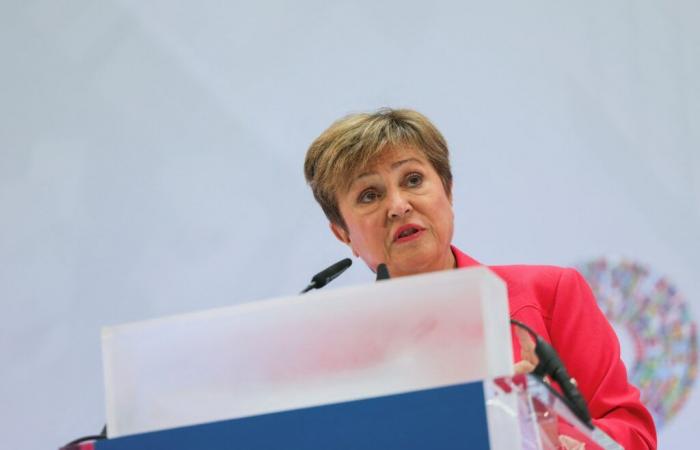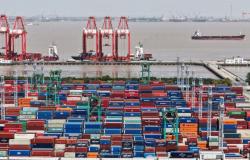
IMF’s general manager Kristalina Georgieva announced a new action plan for countries that are considering restructuring of their debt on Thursday and reiterated her appeal to countries strongly in debt to take proactive measures in order to restore their viability.
Ms. Georgieva said that the global round table on sovereign debt, which brings together creditors, borrowers, the International Monetary Fund, the World Bank and the 20 (G20) group of the main economies, would soon publish this document.
This organization, created in February 2023, is expected to hold a session on closed doors next Wednesday, during the Spring meetings of the IMF and the World Bank in Washington.
“Countries whose public debt is unbearable must take proactive measures to restore viability, including, in some cases, making the decision difficult to request a restructuring of their debt,” said Georgieva in a speech before next week’s meetings in Washington. Ms. Georgieva added that small countries could be seriously affected by global trade tensions, which, according to her, would lead to a drop in growth and an increase in inflation, but that they should strive to put their business in order, in particular by attacking their debt and preserving the flexibility of their exchange rate.
Debt questions will probably be overshadowed next week by the general concerns aroused by the trade war launched by US President Donald Trump, who has imposed a multitude of customs duties on aluminum, steel and cars, as well as a universal customs right of 10 % on all countries.
-This guide will provide additional guidelines and directives to finance ministers and central banks, clarifying the processes already in place for the restructuring of the debt, said a source close to the document. “This is an additional tool intended to help political decision -makers navigate in the complexities of the process,” said the source.
No additional details were available immediately.
Eric LECOMPTE, executive director of Jubilee USA Network, a coalition of religious groups, development and rights of rights, praised Ms. Georgieva’s new initiative in favor of a preventive restructuring of debt before the countries sink more in the crisis.
He said that the Tsunami of customs duties imposed by the United States, which has been followed by retaliatory measures on the part of other countries, as well as the prospects for an increase in inflation, the maintenance of high debt levels and the revision of the decline in growth forecasts threatened to hit particularly harsh intermediate income countries and could worsen debt problems.
He added that debt experts were particularly concerned about the countries of sub -Saharan Africa and certain regions of Asia, but that even countries like South Africa, India and the Philippines were faced with challenges given their exposure to customs duties. (Report by Andrea Shalal; edited by Anna Driver)







